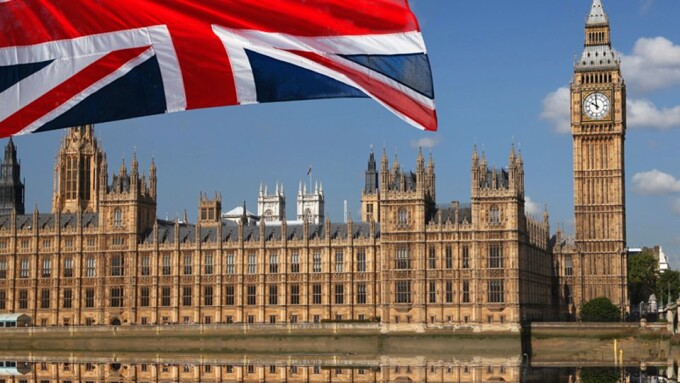LONDON — A motion to approve draft legislation over U.K.’s age-verification regulations will be the top business at the House of Commons on Monday.
After one delay after another, final draft legislation under the Digital Economy Act will be moved forward for debate and likely approval.
Under the government’s plan, commercial adult sites will be forced to show they are verifying users are over 18. Failure to do so could block companies from taking credit card payments or even see their sites blocked by ISPs in the U.K.
With the new law ready to go into effect as early as spring, a cottage industry of age-verification companies, including companies like AVSecure, AgeID and numerous others, have started up to offer solutions as third parties to verify users’ ages.
Members of Parliament chose the BBFC — known formally as the British Board of Film Classification — to enforce statutes regarding accessibility to online content under the Digital Economy Act.
Stephen Winyard, AVSecure’s chief marketing officer, told XBIZ: “We are particularly pleased that the prime minister is set to approve the draft guidance for the age-verification law on Monday. From this, the Department for Digital, Culture, Media and Sport will issue the effective start date and that will be around Easter, as Lord Ashcroft and minister Margot James have already indicated.
“AVSecure have not stopped working and despite the pantomime of U.K. politics, we are ready, willing and most able to offer a solution to the global adult industry. Finally, whilst it’s a season of goodwill, we remind industry that our service is free!”
On Tuesday night, a panel of members from the House of Lords approved key rules that are needed to ensure part of the Digital Economy Act can move forward.
Some issues raised were that, under the Digital Economy Act, age verification won’t apply to porn content on social media sites like Twitter and that some animated child sex images will still be behind age-verification checks.
Other issues raised involved data security and privacy, as well as enforcing the law and blocking noncomplying websites.
“By the time the BBFC has sent out a warning and it is received, given another notification, published this, waited for the website to write back, etc., how long will it take?” The Earl of Errrol asked other members of Parliament. “Websites that want to get around it will game the system.
“If the Internet Watch Foundation, without a true legal basis, can get sites blocked immediately, why cannot we, with proper law? Everyone has had warning about it. The whole of the industry around the world has apparently been talking about it for the past year. The BBFC has spoken at such events.
“Everyone knows, so I cannot understand why we cannot act more quickly and go live from day one. If anyone does not comply, that is bad luck. We could set up some pre-notification stating: ‘If you do not comply by tomorrow, you have had it.’”
Baroness Benjamin of the House of Lords, however, said she planned to count on ancillary service providers and payment service providers to withdraw their services to noncompliant websites.
“I have been told by the BBFC that PayPal, Visa and MasterCard have already indicated that they will withdraw services where there is non-compliance,” she said. “I also welcome the support that I understand will be given by the ISPs and mobile network operators. Their role will be crucial.”







